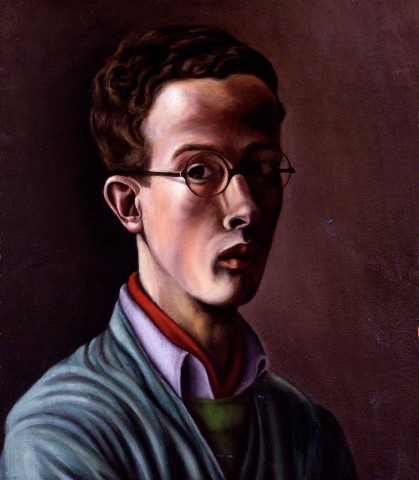Faber imprint Faber Finds is the
self-styled ‘place for lost books,’ rescuing long out of print
worthies from the trash heap of obscurity, and in the case of
British author Denton Welch (1915 - 1948) their attentions could not
be better directed.
The son of a wealthy businessman, Welch
split his childhood between England and his adoptive hometown of
Shanghai. He was aware at an early age of his homosexuality, and in
his later life as an author took advantage of his ‘outsider’ status
to pen some of the most original and startlingly evocative prose of
the mid-20th century.

Having dismissed the Second World War
as ‘another example of the horrible devil-worship of grownups,’ he
turned his literary attentions to the more worthy topics of
eccentric acquaintances (‘his face looked like a very large,
scrubbed, kind potato’), a lifelong obsession with the minutiae of
daily existence (‘I felt the soft, silky dust grating between the
soles of my feet and the polished boards’) and the endless
frustrations of unrequited love (‘when you long with all your heart
for someone to love you, a madness grows there that shakes all sense
from the trees and the water and the earth’).
Welch spent most of his adult life as a
semi-invalid, having been struck by a car whilst bicycling at the
age of 20 - among the injuries which would eventually lead to his
death thirteen years later were a fractured spine and several
irreparably damaged internal organs. Though in his later years he
was bedridden for days or even weeks at a time (‘all life seems an
agony of sickness’) so skilled was he in the art of subterfuge that
many amongst his acquaintances and admirers were unaware he was even
ill. And although the wretchedness of his physical state
occasionally left him peevish and despondent, more often than not
his largely autobiographical writings are alive with the poetry of
one who sees (and feels) the world more keenly than most.
Describing a woman he had seen eyeing
him askance at a public bath, for instance, he writes ‘I wondered
why she disliked me so much. Perhaps she realised that I thought
her buttocks looked like full wine-skins.’ Of the eyeglass
innocently dangling at the waistcoat of an elderly associate: ‘It
reminded me of one of those little windows that vivisectionists let
into the stomachs of animals.’ And on his impressions as a boarding
school student after having received a caning from the headmaster:
‘The room was quite different when I opened my eyes. The light was
thick like milk and it seemed to float cloudily about the room.’
Whereas the characters of lesser novelists might merely grin, those
of Welch’s periphery are inclined to give a ‘wide, mechanical,
ballerina’s smile’ as they go about the ‘settled reverie’ of their
lives. Quite simply, there has never been a writer quite like him,
before or since. As one biographer aptly opined:, ‘I can think of
no writer who has described the extremes of physical and mental
agony with more appalling vividness than Denton Welch.’
Though this trend is somewhat
understated in Maiden Voyage, his first published work, all
the stylistic and thematic hallmarks that would later come to be
associated with his writing are nonetheless evident in spades;
Denton did not live long enough to suffer through any artistic
troughs, and the overwhelming bulk of his output is of the same
sublime standard.
The book is an account of his sixteenth
year, when he briefly ran away from his English public school and
later spent a year living with his father in Shanghai. The scenes
themselves are largely unremarkable - he hides out in hotels for a
few days, describes moments of timid, thwarted sexuality, and later
on travels to Nanking with a business associate of his father. Yet
the manner in which he paints these otherwise trivial vignettes, as
well as the people and objects which populate them, is a thing of
rare, resplendent beauty. Scenes come entirely alive, characters of
the most fleeting significance are evoked with startling clarity,
and his precise, analytical and unsparing eye recreates the foibles
of his fellow travellers in a way that is a marvel of contrasts,
somehow managing to be simultaneously charming and precious, funny
and sad, ethereal and yet wholly lucid.
Later, owing largely to the extent of
his injuries and his own impending sense of mortality, a gentle
undercurrent of sorrow ran through much of his work, imbuing even
the simplest of scenes with tenderness and urgency. He writes of an
outwardly serene 1947 picnic with Eric, for instance, that it ‘was
too sad to forget,’ and elsewhere attempts to reconcile his
considerable ambitions with his piteous health: ‘I want to get
something done, and shall do, I hope, if I don’t die.’ In Maiden
Voyage the emphasis was on hope; hope, as it turned out, for a
future that never came. It’s a brilliant and unforgettable book,
and one that deserves to be rediscovered by a new generation of
readers.